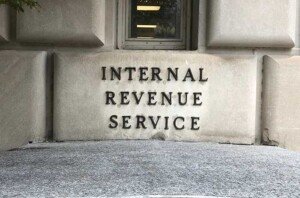IRS Announces Help for Taxpayers Who Can’t Pay Taxes Due to COVID-19

- Extended time to pay. Those with short-term payment plans have 180 days to pay instead of 120 days.
- Simplified Installment Agreement process. Individuals who owe less than $250,000 may be able to set up an Installment Agreement without providing the usual financial documentation if their monthly payment proposal is sufficient and has not yet been assigned to a revenue officer.
- Modified qualifications for Installment Agreements. For individuals who were notified of taxes owed with liabilities up to $250,000 for Tax Year 2019 only, the IRS can offer one Installment Agreement opportunity with no lien filed.
- Online access for Direct Debit Installment Agreements. Qualified taxpayers may now be able to use the Online Payment Agreement system to propose lower monthly payment amounts and change their payment due dates.
- Temporary relief from collections. Several options exist including Currently Not Collectible (CNC) status. CNC status is where the IRS agrees the taxpayer cannot both pay his or her taxes and basic living expenses.
- Automatic addition of new tax year balances. For individuals and out of business entities, the IRS will automatically include new tax year balances to existing Installment Agreements so these taxpayers can avoid default of the agreement.
- Penalty abatement. The IRS is emphasizing that it can grant qualified taxpayers penalty abatement if the taxpayer had reasonable cause for not filing a return or paying taxes. In addition, the first-time penalty abatement waiver may also be available.
In addition, an Offer in Compromise continues to be an option for some taxpayers. An Offer in Compromise allows taxpayers to settle their tax liability for less than the full amount owed. To qualify, taxpayers must show one of three grounds:
- Doubt as to liability – the taxpayer can establish a genuine dispute as to the existence or amount of the correct tax debt under the law;
- Doubt as to collectability – the taxpayer’s assets and income are less than the full amount of the tax liability; or
- Effective tax administration – the taxpayer may be able to fully pay the tax, but such payment would cause an economic hardship or there are compelling public policy or equity considerations.
Note that the IRS has indicated it will provide relief for taxpayers having difficulty meeting the terms of previously accepted offers.
The most important advice to taxpayers is to act promptly. You will have the most options to settle your tax debts and avoid collection action the sooner you act.
For more information on the new tax relief provisions, visit the IRS website or contact our firm for a consultation.


